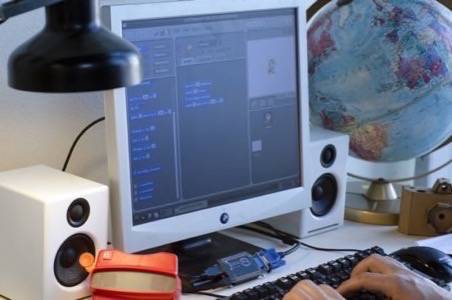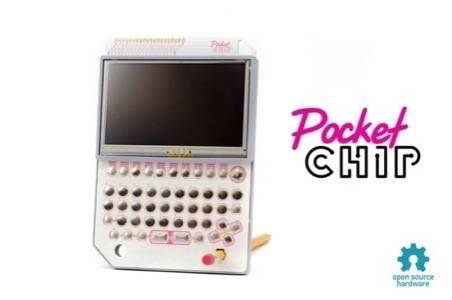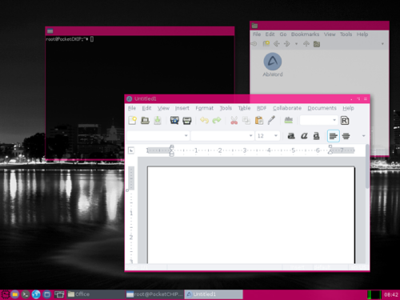It wasn’t so long ago that a $25 Raspberry Pi seemed like a revolution in inexpensive single-board computers—but now a $9 computer called Chip has managed to go even lower. Having already surpassed its $50,000 Kickstarter goal more than 14 times over, Chip from Next Thing is, well, the next thing in cheap and versatile computing.
In fact, it’s the latest in a line of cheap but fully-featured computers that are rapidly bringing the Internet of Things within reach of your average DIY hacker or maker.
What Is Chip?
Simply put, the Chip is a teeny computer that boasts serious-enough specs to handle most basic computing tasks. It boasts a 1GHz processor, 512MB of RAM, and 4GB of internal storage, not to mention Wi-Fi and Bluetooth 4.0 connectivity. It features a built-in composite output, and it can connect to VGA or HDMI displays via an adapter.

And since it already has a fully integrated battery power circuit, all you need to do is attach a 2.7 volt lithium-ion polymer battery to the thing and you’re good to build Chip into portable, hacked-together projects. Chip also features an open source operating system already baked in, which can handle the Chromium web browser or LibreOffice for productivity work.
Next Thing also offers the Pocket Chip, a Palm Treo-like housing for the Chip that features a 4.3-inch touchscreen, a full QWERTY keyboard, and a 5-hour battery—though I’m not sure how many people will be using the Pocket Chip to type out essays.

A Big Order For A Low Price
In order to offer the Chip at such a low price, Next Thing wanted to order parts in huge quantities from its suppliers. Doing so at a higher volume would obviously lower the individual cost of the parts, so Kickstarter was a natural choice. Considering that it’s already raised over $700,000 with about 25 days left on the campaign as of this writing, Next Thing probably won’t face any shortage of supplies to build Chips.

With the creation of a $9 computer, makers have more tools than ever before to create the projects of their dreams. As technology continues to get smaller and cheaper, even more people will learn to code and hack together their ideas. And at this rate, even a $9 computer may soon seem ridiculously overpriced.
Images courtesy of Chip

















